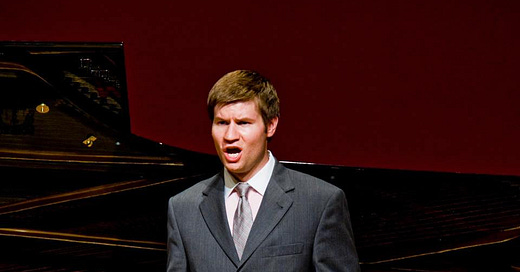You Don’t Have to Perform to Be Paid
What Singing Taught Me About Earning with Structure and Self-Respect
I never set out to become a coach. Or an entrepreneur.
And definitely not someone who talks about money and voice in the same breath.
But in hindsight, it makes perfect sense.
Because before any of that, I learned how to ride a bike—and how to sing.
Both taught me more about structure, self-trust, and income than any business seminar ever did.
The Real Mechanics of Momentum
Riding a bike was my first lesson in balance.
Not the kind you grip with white knuckles—but the kind you enter.
The kind that clicks only once you start moving, even before you feel fully ready.
Entrepreneurship is the same. You don’t build clarity in theory. You build it in motion.
But the deeper lessons came from singing.
Where Performance Meets Pressure
My vocal journey wasn’t smooth. I wasn’t just told I lacked technique—I was told I lacked feeling.
“Open up more.”
“Be more expressive.”
“Let people in.”
The unspoken message: You’ll only be received if you give people the feeling they expect from you.
And for a while, I believed it.
I tried harder. Felt harder. Emoted harder.
But what I ended up with wasn’t vulnerability—it was strain.
Not because I didn’t feel deeply.
But because I hadn’t yet built the technical foundation to express from a place of ease.
The problem wasn’t a lack of emotion.
It was a lack of structure.
From Expression to Integrity
Once I had technical clarity—breath, alignment, self-trust—everything changed.
I stopped performing emotion and started allowing expression.
It wasn’t louder. It wasn’t flashier. It was clearer.
And that’s the shift I now help entrepreneurs make in their businesses.
The Trap of Performed Vulnerability
In the business world, I see the same pressure show up in new packaging:
“Be more open.”
“Trust the audience.”
“Just show up and serve.”
But emotional generosity isn’t a business model.
And connection without clarity doesn’t create income.
We’ve romanticized visibility.
We’ve spiritualized asking.
We’ve turned self-sacrifice into strategy.
That doesn’t build a business.
And it certainly doesn’t build a voice.
The Real Work: Structure, Messaging, and Self-Worth
The people I work with are often high-integrity experts who’ve been told their business isn’t working because they’re “not aligned” or “not open” enough.
But the truth is:
They’ve never been taught the sales and business structures that support their voice.
They don’t need to perform harder.
They need clarity, pricing, positioning, and sales language that reflects their real value.
That’s where I come in.
The Money Voice
I call this finding your money voice.
It’s not about being louder. Or more charismatic.
It’s not about channeling energy or performing intimacy.
It’s about building a business voice with depth, clarity, structure, and self-assurance—so your offers, pricing, and income reflect your actual worth.
Once you have that, everything shifts.
Just like singing.
Just like riding a bike.
You stop pushing.
You stop performing.
You stop negotiating your value.
You already know you’re worthy—and your business reflects it.
This Is What I Help Clients Build
When my clients find their money voice, their income rises.
Not because they hustle harder—but because they stop diluting their message to stay palatable.
They stop chasing approval.
They stop emotional discounting.
They stop apologizing.
Instead, they sell with clarity.
They speak with strength.
And they earn from a place that is both strategic and self-respecting.
Just like singing, their voice was never missing.
It just needed a foundation that could hold it.
This is the work of The Lucrative Voice.
Not to help you be more emotional.
But to help you be more structurally expressed.
Not to help you perform better.
But to help you stop performing entirely.
More soon,
—Brian





